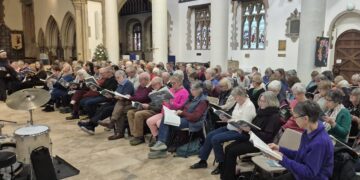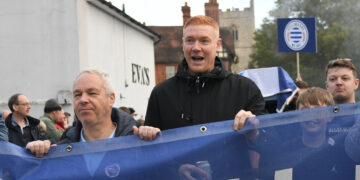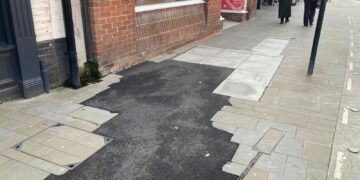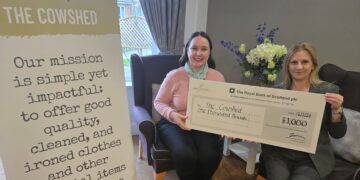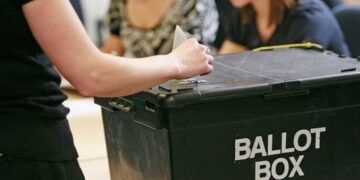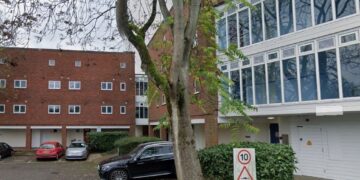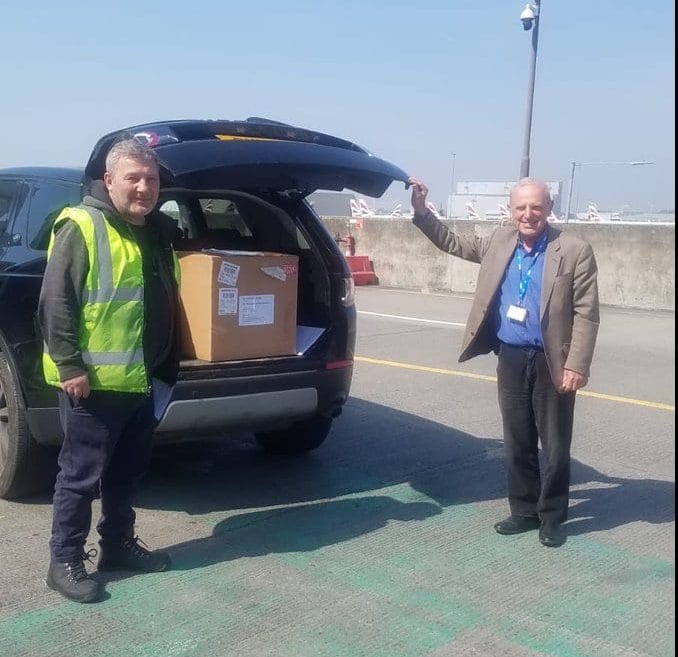MEDICAL EXPERTS in Shinfield have been working to validate the effectiveness of coronavirus antibody tests.
On Friday, April 10, Professor Karol Sikora, Chief Medical Officer of Rutherford Health picked up 1,000 antibody tests from Heathrow Airport — imported from South Korea.
And on Tuesday, the first 30 people in the UK were tested for Covid-19 antibodies using the cost-effective test kit.
These were all staff at the Rutherford Cancer Centre, Thames Valley. And yesterday the tests were rolled out across staff at all four Rutherford Cancer Centres in the UK.
The aim is to quickly compile data on Covid-19 immunity, to be sent to Public Health England.
But first, the tests were checked for their accuracy.
Professor Sikora said: “The tests have already been validated in South Korea and Germany.
“They work by having a little bit of the Covid-19 spike protein placed on a dish, and then you pour 10 microlitres — a pin prick — of the patient’s blood onto the dish.
“The Covid-19 antibodies then recognise and glue themselves to the protein.
“If a line appears, then the patient is immune. But most people don’t show the line.”

Professor Sikora explained that out of 30 staff tested, only two showed positive for the antibodies.
“This means they’ve had it, and they’re immune,” he said.
“And we did three tests. We did a laboratory test, a Chinese kit test and the Korean kit test. And these two people showed positive in all three tests. So these Korean tests are valid.”
But Professor Sikora explained that there are other mechanisms involved when human bodies interact with the virus.
“These two people who are now immune have been working in the building. Both are full time, one an administrator and one a contract cleaner.
“Both have had symptoms and been off work for a week or so in the last month. “Both are pretty dedicated and sociable and so why are more of our staff not infected.
“At a cancer centre with chemotherapy, radiotherapy and proton therapy mingling is inevitable.
“So the virus has been in the building and staff haven’t been ill.
“So what we are seeing is 28 people have been exposed to the virus but don’t have strong antibodies for it.
“There have to be other immunity mechanisms at play. The average age of staff at our centres is under 30. There are reports of other immune mechanisms – NK cells, and local cytokines deactivating the virus without the need for an antibody response in younger people.
“It means that a ‘certificate of immunity’ policy to get people back to work is going to be difficult.”
He also explained that it takes approximately four weeks after infection for antibodies to show.
“If you tested Boris Johnson now for antibodies, he probably wouldn’t have them. But test him in a few weeks and that might change.”
With testing rolled out across all Rutherford Cancer Centres, by Wednesday evening, Professor Sikora held the results for 250 more staff across the country. Data he hopes will explain the results further.
He said that once the data has been gathered, it will be sent to Public Health England, Lord Bethell, Minister for Testing and Professor Sir John Bell, Regius Professor of Medicine at the University of Oxford, and Chairman of Office for the Strategic Coordination of Health Research.
From there, he hopes the Government will decide to import more immunity tests for people across the country.
And at $10 USD (£8) each, this bears a significantly smaller price tag than the staff-dependent lab test.



